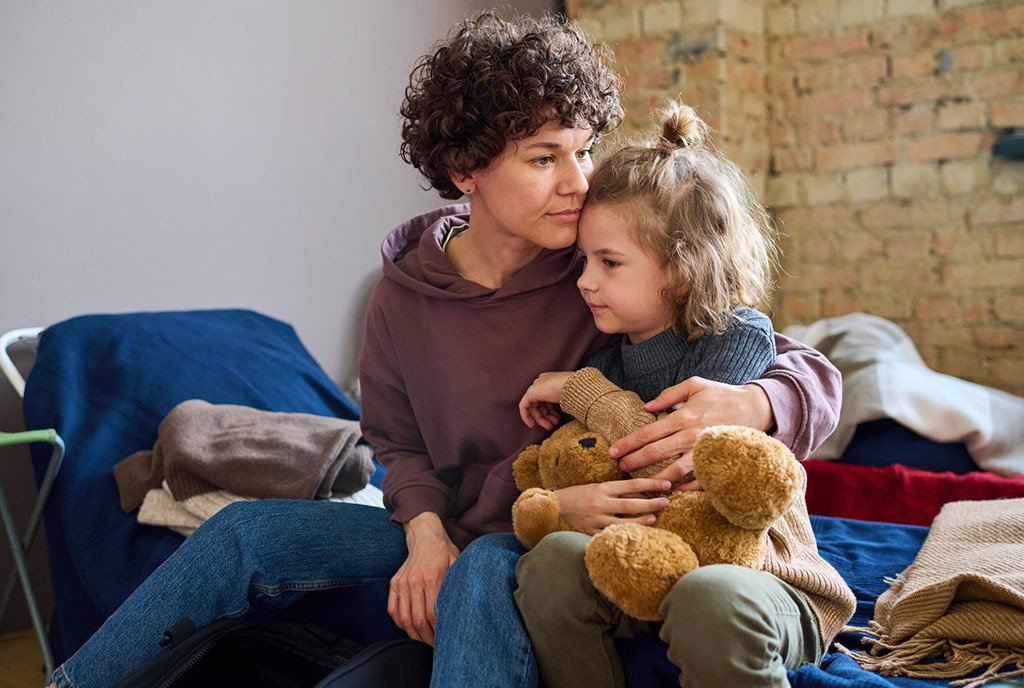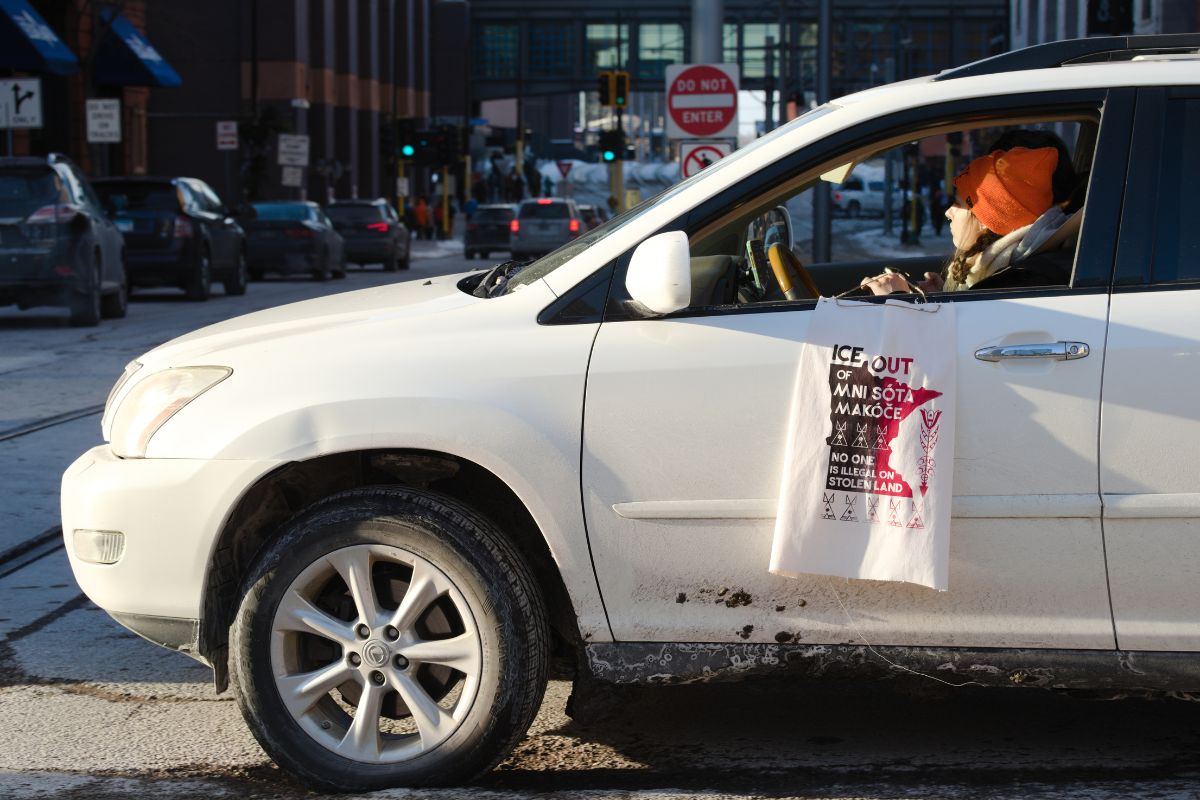
Since 1983, Massachusetts has been the only state in the United States to provide a “Right to Shelter” for homeless families—adults accompanied by one or more children. The law has kept tens of thousands, if not hundreds of thousands, of families desperately in need of shelter off the streets, whether through placements at emergency shelters or other accommodations like hotels.
The governor’s actions will mean families with children sleeping in the streets.
This July, that decades-old protection for the state’s most vulnerable families was effectively halted by Massachusetts governor Maura Healey. Just a few weeks ago, Healey announced that families seeking shelter must abide by a new five-day limit on stays in emergency shelters.
Healey, a Democrat, justified the action under an emergency order she issued last year in response to an influx of migrant families to the state and a corresponding shortage of shelter space to take in homeless families.
The governor’s actions will mean families with children sleeping in the streets and other unfit places in numbers not seen in decades—not since the state’s Right to Shelter was passed over 40 years ago, say advocates for homeless families.
Within days of the governor’s notice, the Boston Globe reported that more than 50 families had received notices to leave shelters. Meanwhile, families are already on the streets in striking numbers, according to another Globe report.
“We see this as a real retreat away from the state’s 40-year commitment.”
While the Healey administration has justified these decisions as emergency measures, the ostensible emergency being a lack of space in emergency shelters, the state’s Right to Shelter is not contingent upon the availability of shelter space. It is a guarantee: that eligible families will be sheltered, at the cost of the state, period. Healey’s actions mark the first time since the law was passed that a Massachusetts governor tried to overtly deny shelter to eligible families.
“We see this as a real retreat away from the state’s 40-year commitment to providing healthcare to eligible families,” says Kelly Turley, associate director at the Massachusetts Coalition for the Homeless.
“It’s very clear that families don’t have safe alternatives,” Turley added. “Families will be in places not meant for human habitation on a level Massachusetts has not seen because for over four decades, you’ve had a right to shelter.”
An Influx Deemed an “Emergency”
Healey’s executive orders regarding emergency shelter for families come as part of a series of actions taken both to address an ongoing influx of migrant families to Massachusetts—and to project a message that migrants should not come to the state.
In June, Healey sent members of her administration to several cities along the southern US border to send a message to would-be migrants: Massachusetts shelters were full.
As Newsweek reported:
“This trip is an important opportunity to meet with families arriving in the U.S. and the organizations that work with them at the border to make sure they have accurate information about the lack of shelter space in Massachusetts,” Emergency Assistance Director General Scott Rice, who traveled south, said in a statement. “It is essential that we get the word out that our shelters are full so that families can plan accordingly to make sure they have a safe place to go.”
Unhoused families have become a responsibility that state officials seem unwilling to take on.
Just days later, Healey announced that dozens of migrant families who had been sheltering at Boston’s Logan International Airport would no longer be able to stay there.
In the ensuing days and weeks, desperate families began taking shelter at the Boston Medical Center hospital—until, this July, they were turned away from that refuge as well.
Sign up for our free newsletters
Subscribe to NPQ's newsletters to have our top stories delivered directly to your inbox.
By signing up, you agree to our privacy policy and terms of use, and to receive messages from NPQ and our partners.
As the Boston Globe reported:
Many evenings, staff at Boston Medical Center—which last year instituted a policy barring migrant families from staying in its emergency department—book ride shares for the migrants who show up there. They frequently send them to the Brazilian Worker Center in Allston, which runs a “welcome center” in partnership with the state. But when families arrive, the center is often closed, leaving some with little choice but to stay outside overnight.…The hospital defended the practice of putting migrant families in ride shares. “Boston Medical Center does not have the capacity or resources to provide shelter to unhoused families,” David Kibbe, a BMC spokesperson, said.
Banned from sleeping at the airport, turned away from hospitals, and now, given only five days to stay in emergency shelters, unhoused families have become a responsibility that state officials seem unwilling to take on.
Families Desperate
Meanwhile, for the first time in recent memory, eligible families are being turned away by Massachusetts’ family shelter program, and their situations are becoming increasingly desperate.
“Right now, families who are applying for emergency assistance family shelter in almost all circumstances are being put on a waiting list before they’re actually placed in shelter,” Turley told NPQ.
What’s more, many of these families are being offered an impossible choice: “Families are now being given an option that either they can take a placement in an overflow shelter in general for no more than five days, and then if they take that placement, they won’t be eligible for a longer-term shelter for at least six months,” said Turley.
The desperate families who accept the terms of this new policy are then left with just five days to find other accommodation before they risk being turned onto the street.
“Five days is an inadequate window for families who have no place else to go to suddenly find a meaningful alternative,” emphasized Turley. “And so, the families’ request was for more time so that they don’t have to be with their children in the streets or other unsafe places.”
Where else are they to go?
“We’re already seeing an increasing number of families that are staying in cars, staying in MTA stations, trying to go back to Logan Airport even though the governor has prohibited people from staying there,” said Turley.
A Legacy of Leadership, Broken
Massachusetts isn’t alone in grappling with an influx of homeless migrant families—or in trying to change the rules when it comes to these families’ ability to access emergency shelter.
New York Mayor Eric Adams has repeatedly sought to suspend or modify the city’s own Right to Shelter policy for individual unhoused people—and has succeeded for now in imposing new restrictions for shelter stays.
But Massachusetts, as the only US state with a Right to Shelter for families, now stands at the precipice of becoming a precedent-setter again—this time in effectively halting 40 years of leading the nation in protecting homeless families.
Advocates like Turley are urging the governor and legislature to reconsider such a reversal.
“Massachusetts has prided itself on being a welcoming state for newly arrived immigrants, for LGBTQ families, and others,” Turley told NPQ. “It’s a dramatic shift to say, well, we are overwhelmed, and there’s nothing more we can do. We have to close our doors.”











